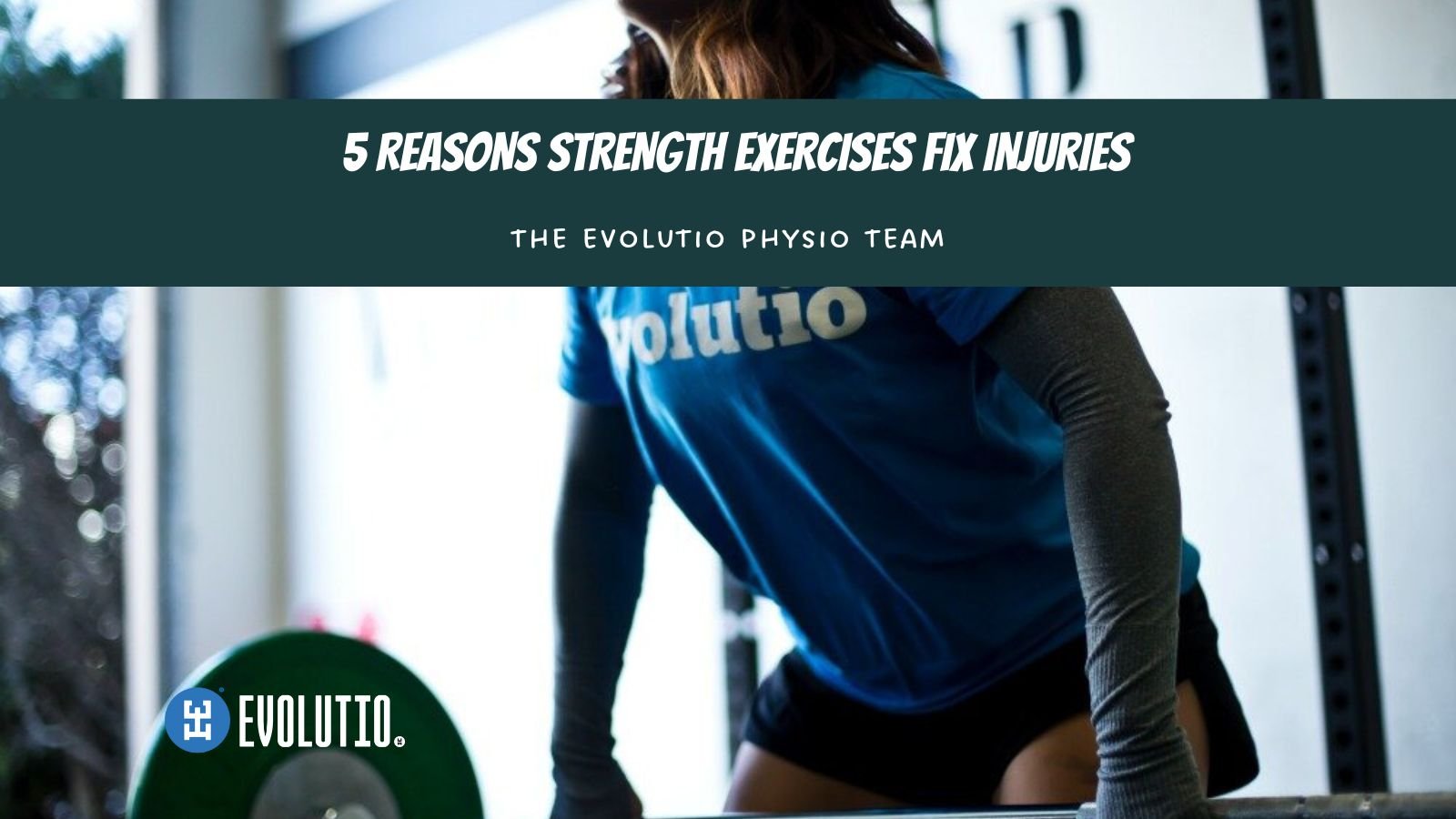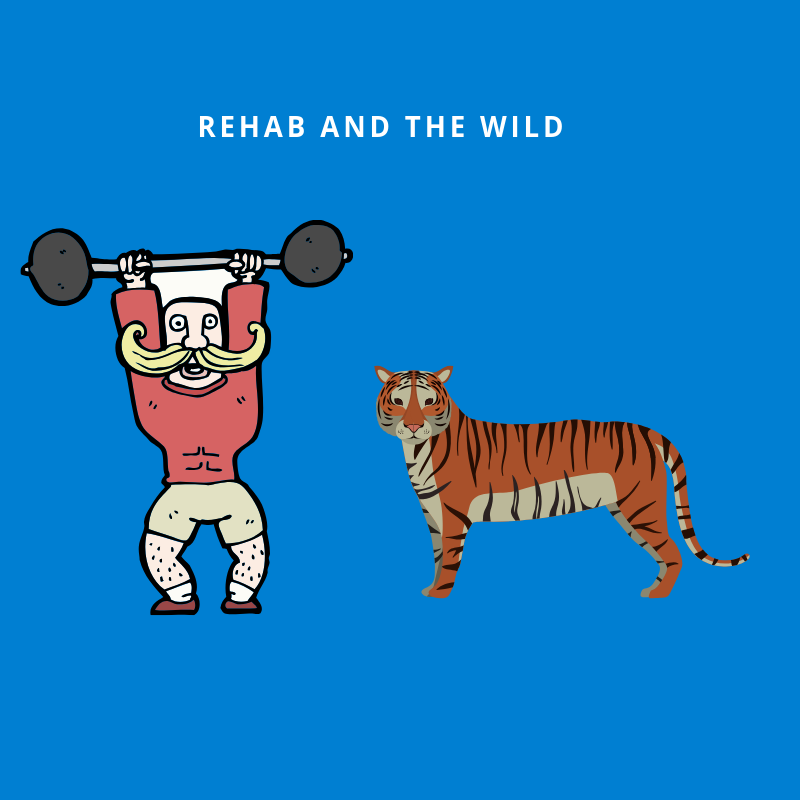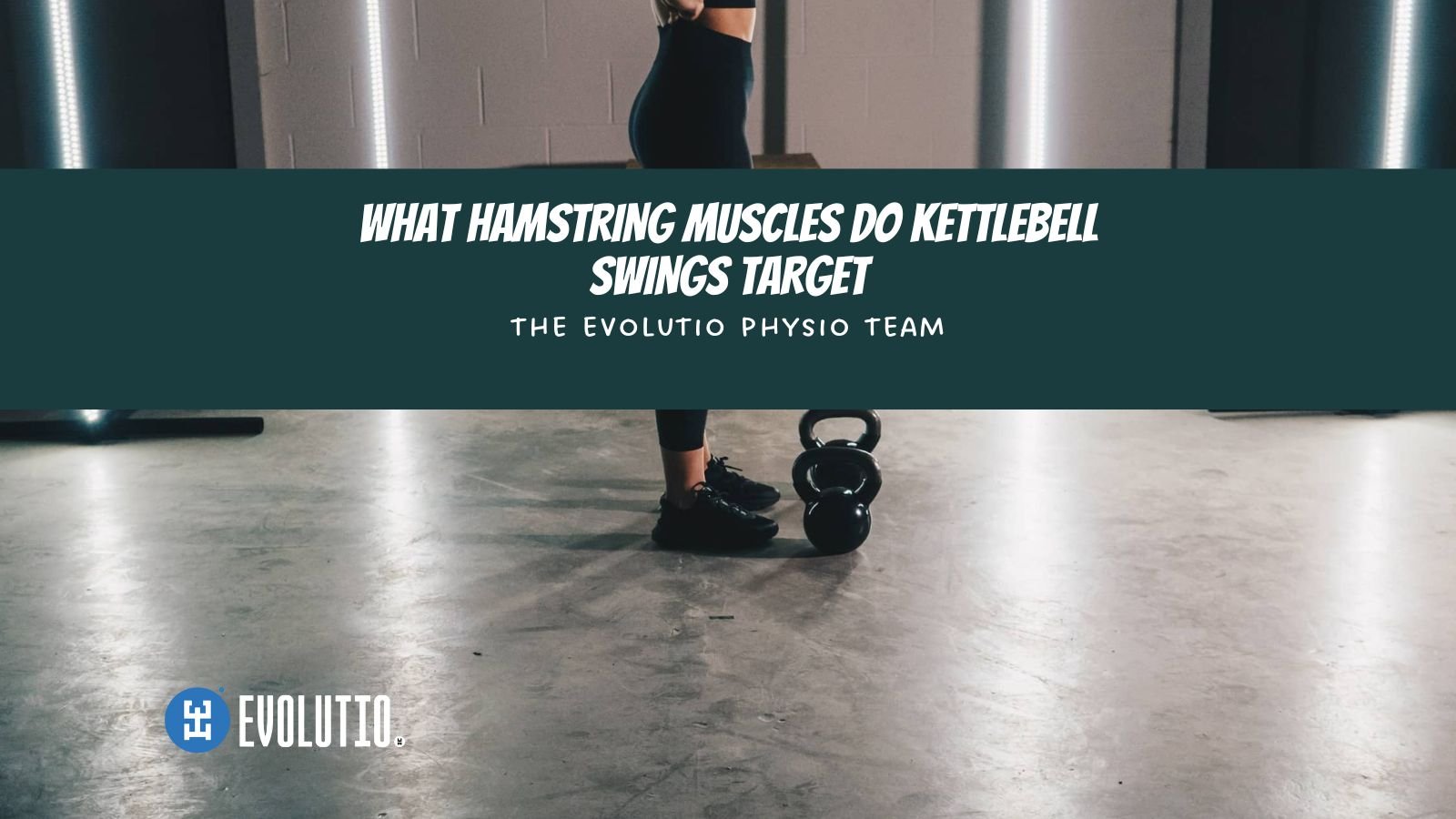
5 Wicked Drills to Improve Ankle Mobility
As the forgotten and neglected uncle of the leg family, the ankle is a joint as detailed as any in the body. Containing 26 bones, 33 joints and over 100 muscles, ligaments and tendons it's clearly not as simple as it may look.
What we need is a concoction of mobility drills, proprioceptve drills and stability drills to nail all facets, important in getting our ankle ready for training.

5 Reasons Strength Exercises Fix Injuries
Here are the untold reasons why you are given rehab exercises and why you should do them!
1) Mechanotransduction
Mechanotransduction describes the process in which your cells convert mechanical loading into cell responses. The cellular responses then promote structural change - thus when load is used therapeutically, it can help with repair and remodelling of your tendons, muscles, cartilage and bone (Khan & Scott, 2009)

5 Strength Exercises for a Desert Island
If I were going to a desert island and could only take one type of squat with me, I would pick Bulgarian Split Squats.

What Muscles do Kettlebell Swings use?
The kettlebell swing is a staple exercise of CrossFit training or everyday strength and conditioning work; one that places great demands on the muscles of our posterior chain.
More specifically, a study submitted through the British Journal of Sports medicine in 2013 noted that kettlebell swings use predominately hamstring muscles, however they actually target semitendinosus, the medial, inner hamstring over the lateral biceps femoris, with higher levels of Electromyographic (EMG) activity noted through the skeletal muscles.

How to Use Occlusion Bands
Aim for 60% of Max Blood Flow Occlusion
Science says all the good things seem to happen around 60% of max blood flow occlusion depending on what device you are using. This allows for just enough venous restriction with continued arterial blood flow.
With a Sports Rehab Tourniquet - pump the pressure until you can no longer feel an arterial pulse (my advice it to use medial malleolus/ inner ankle pulse). Then measure approximately 60% of that OR aim for between 130-150mmHg – for first timers start lower (thank me later).

5 Rules to Rehabilitate your Running Clients
Five years ago I was lucky enough to come across a treatment modality that just resonated with me. This particular treatment style isn’t necessarily a treatment style, rather, a framework to view, assess and understand the human body in a different way.

The Best Shoulder Strength Exercise – Bar None
COVID has brought about many travesties and hardships to us all. Times are indeed tough – we cannot visit loved ones or get outside for hours on end to enjoy the delicious Melbourne winter weather (which seems to be one of the more mild ones in memory just to rub it in our faces). Gyms are closed, and so are our favourite restaurants and bars – this has forced me into finding a different type of bar to pass the time and get me through COVID lockdown 2.0 – the kettlebell arm bar.
Poor Movement Patterns exist only in your Brain
Poor movement can exist anywhere in the body. Poor movement patterns exist only in the brain.
The Initial assumption of pain and motor control stemmed from basic inhibition (e.g. knee joint inflammation causing inhibition of the Inner Quad VMO muscle). When pain exists, you can occasionally get an increase in muscle activation (high threshold strategy) depending on the given role of the muscle (agonist or antagonist).

